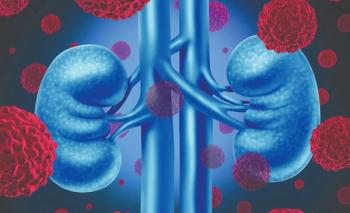
- ONCOLOGY Vol 13 No 5
- Volume 13
- Issue 5
No Link Found Between PCB Exposure and Cancer Mortality
In the largest human study of its kind, researchers Renate D. Kimbrough, MD, and Martha L. Doemland,PhD, have found
In the largest human study of its kind, researchers Renate D. Kimbrough, MD, and Martha L. Doemland,PhD, have found no association between actual human exposure to polychlorinated biphenyls (PCBs) and death from cancer or any other diseases.
For more than 20 years, the federal government has characterized PCBs as probable human carcinogens based, in part, on Dr. Kimbroughs 1975 study of PCBs in rats fed a diet containing large quantities of the substance. This new study provides strong evidence that even long-term human exposure to PCBs at higher levels than are found in the environment is not related to an increase in deaths from cancer or any other diseases, said Dr. Kimbrough, the studys principal investigator and a senior medical associate with the Institute for Evaluating Health Risks (IEHR) in Washington, DC.
The findings of the study, published in the March 1999 issue of the Journal of Occupational and Environmental Medicine, are consistent with those of four other studies of the same population conducted by other researchers over a span of nearly 25 years. However, the current study is the largest and most statistically powerful one to date.
Study Data
The study focused on 7,075 men and women who worked between 1946 and 1977 in two upstate New York General Electric factories that used PCBs in manufacturing electrical capacitors. The study compared the number (1,195) and causes of death within the study population to national and regional averages. The average follow-up time for study members was 31 years, providing a sufficiently long latency period in which to determine whether there was any increase in cancer mortality.
Some of the workers in the study had PCB levels in their blood as high as several thousand parts per billionwell above the average PCB levels found in the blood of people in the United States who have been tested (average PCB levels range from four to eight parts per billion, according to the Agency for Toxic Substances and Disease Registry).
Dr. John A. Moore, president of IEHR, said: The findings of this study are consistent with a belief that cancer risks from exposure to PCBs have been overstated. The newer laboratory data of the past several years support such a view and also prompted the EPA to reduce the factors they use to estimate PCB cancer risks.
Smaller Trials Confirm Validity of Current Findings
Dr. Arthur C. Upton, former director of the National Cancer Institute and currently a professor at the Robert Wood Johnson Medical School, said of the study: This is a significant study that should be factored into any public discussion of PCBs and human health. Dr. Kimbrough and her colleagues were meticulous in their efforts to gather and verify information on the 7,075 individuals who were part of the investigation. The analysis of the data and conclusions are scientifically appropriate and the authors are to be complemented on the high quality of their study and report as well as the publication that was prepared from this information.
Dr. Upton chaired a five-member advisory committee established by the IEHR to review the design, execution, analysis, and interpretation of the study.
This was a well-designed and carefully conducted study, said Dr. Jack Mandel, an epidemiologist and professor and director of environmental and occupational health at the University of Minnesota.
The studys findings are consistent with shorter-term studies of workers in the same factories conducted by the National Institute for Occupational Safety and Health, Harvard School of Public Health, the New York State Department of Health, and the Mt. Sinai School of Medicine.
The IEHR conducted the study at the request of and with funding from General Electric, which operates the businesses where the workers were employed. General Electric had no role in the conduct of the study, the evaluation of the data, or the conclusions drawn, said Dr. Kimbrough.
Articles in this issue
almost 27 years ago
Thalidomide Shows Promising Results in Patients With Multiple Myelomaalmost 27 years ago
Bill Would Allow Medicaid to Pay for Cervical/Breast Cancer Treatmentalmost 27 years ago
Photodynamic Therapy for Palliation of Locally Advanced Lung Canceralmost 27 years ago
Zeneca Launches Education Program Aimed at Reducing Breast Cancer Riskalmost 27 years ago
Reinventing Bone Marrow Transplantationalmost 27 years ago
Age Should Not Determine Treatment of SCLC Patientsalmost 27 years ago
Single Chest X-Ray Leads to Improved Lung Cancer Prognosisalmost 27 years ago
Arsenic Induces Remissions in Patients With Acute Promyelocytic Leukemiaalmost 27 years ago
Cancer Outreach Programs for African-AmericansNewsletter
Stay up to date on recent advances in the multidisciplinary approach to cancer.



















































